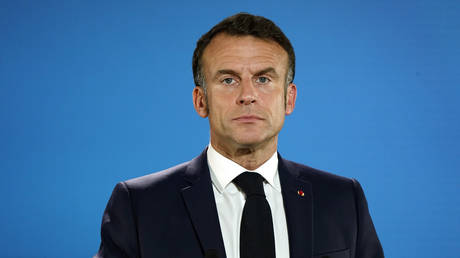IMF enthusiastic about mozambican economy
The Executive Board of the International Monetary Fund (IMF) announced on Monday that it has completed its first review under the Extended Credit Facility (ECF) arrangement with Mozambique, which will give the country access to 45.44 million Special Drawing Rights (SDRs, equivalent to 59.26 million US dollars).
According to an IMF press release, this money is available for budget support immediately. It brings total disbursements to Mozambique under the ECF arrangement to about 150 million dollars.
The ECF is for three years, and is intended “to support the economic recovery, reduce public debt and financing vulnerabilities, and foster higher and more inclusive growth through structural reforms”.
The IMF release says that Mozambique met all the performance criteria and indicative targets laid down in its programme with the Fund. “The monetary policy stance and proactive tightening since early 2021 are deemed appropriate to address higher than expected inflation”, it added.
The IMF forecasts that growth will increase in 2022, “with the strengthening economic recovery despite the worsening international economic environment and rising commodity prices, reflecting a strong vaccination campaign and full lifting of COVID-related restrictions in July 2022”.
It noted that “inflation has risen to double digits, driven by global fuel and food prices and tropical storms that impacted domestic food supply in the second quarter”.
Nonetheless, “fiscal developments in 2022 are broadly aligned with expectations, with strong revenue and contained spending. Large liquefied natural gas (LNG) investments are driving the current account. The first LNG project started production in November 2022”.
This enthusiastic release declares that “programme implementation has been strong, despite the challenging environment, with completion of important programme commitments in the areas of fiscal governance and anti-corruption”.
Cited in the release, Bo Li, the IMF’s Deputy Managing Director and Acting Chair, said “The economic recovery is strengthening, supported by a successful COVID vaccination campaign. Programme performance has been strong, with all quantitative targets and the structural benchmark met at end-June. While the outlook remains positive, driven by large liquefied natural gas (LNG) projects, significant risks remain, including from adverse climate events and fragile security situation. Governance weaknesses and debt vulnerabilities also pose challenges. In that context, continued capacity development and donor support remain imperative for Mozambique to achieve its development objectives”.
Bo Li added that “Solid revenue performance and spending restraint helped align fiscal outcomes with programme objectives. The authorities’ fiscal policy reforms will contribute to medium-term fiscal consolidation. A broader VAT (Value Added Tax) base will help secure buoyant and diversified revenues independent of commodity prices. Reforming public sector remuneration will improve efficiency in delivering public services and create space for other spending priorities over time. Revenue administration and public financial management reforms are also essential to achieve fiscal policy objectives”.
What the IMF appears to have forgotten completely is the reason for the ECF arrangement. The release passes over in silence the fact that for six years there was no IMF programme for Mozambique, because of the enormous scandal of the country’s “hidden debts”.
This term refers to the loans of over two billion dollars which three fraudulent, security-related Mozambican companies obtained in 2013 and 2014 from the banks Credit Suisse and VTB of Russia. The loans were only possible because of illicit loan guarantees issued by the government of the time, under the then President Armando Guebuza. Those guarantees violated the Mozambican Constitution and the 2013 and 2014 budget laws.
When the three companies went predictably bankrupt, the Mozambican state became liable to repay the loans.
Initially, the government kept two of the three loans secret. But when the full extent of the loans became public knowledge in April 2016, the IMF accused the government of hiding the true state of its foreign debt.
The IMF suspended its programme with Mozambique, and only this year did a new programme begin. All 14 of the partners who provided Mozambique with aid in the form of direct budget support ceased their disbursements. This cost Mozambique hundreds of millions of dollars of aid a year.
Yet the IMF appears to have scrubbed all of this from its memory. There is no mention whatsoever of the hidden debt scandal in the IMF release. Not a word. Even the fact that the trial is still under way of 18 people accused of criminal offences connected to the loans is omitted. Thus does the IMF try to wipe away recent history.
(AIM)


















